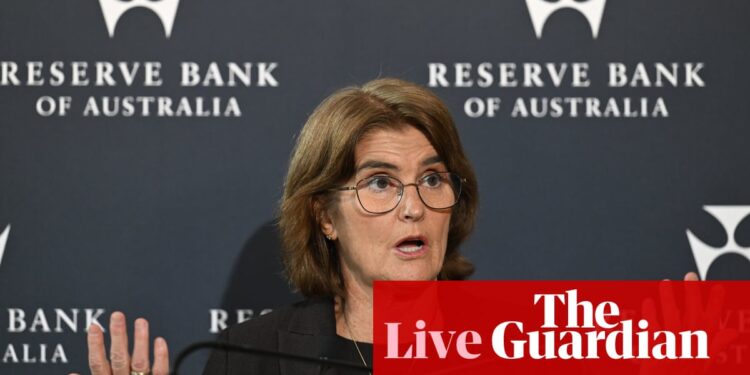Key events
Our reporter Luca Ittimani has been speaking to the owner of a once-bustling Sydney cafe who has seen his trade fall off a cliff.
Brett Harris, who runs the Balkan Butler in Surry Hills in Sydney, says: “People just aren’t here, there’s not as many bodies. Where are they? What are they doing?”
Yesterday’s GDP figures were among the worst for years with only population growth and government spending keeping the economy afloat.
With his usual razor-sharp chart-based analysis, Greg Jericho identifies one of the key problems: in the March 2022 quarter, Australians were paying $479 a quarter per person in interest repayments compared with $1,112 now.
He argues the Reserve Bank must realise its mistake in hiking rates and start to cut them before the situation gets worse.
Welcome
Good morning and welcome to our rolling news coverage. I’m Martin Farrer and I’ll be bringing you some of the main overnight and breaking news stories before Emily Wind starts.
The controversy over the census questions takes a new turn today as several major health institutes have called for a rethink because the excluded data is “critical” for identifying health needs. The group, including the Kirby Institute, the Centre for Social Research in Health and the Australian Human Rights Institute, released a joint statement saying the questions were needed to fill in gaps in much-needed research.
After yesterday’s anaemic growth figures, attention will be on the Reserve Bank governor, Michele Bullock, when she gives a speech in Sydney at midday. There are growing calls for the bank to start cutting interest rates after a sustained period of high borrowing costs has helped dampen inflation but sucked demand out of the economy at the same time. We have analysis coming up of yesterday’s numbers, and we’ll have details of Bullock’s speech when we get them.
A team of researchers at the University of Sydney have been awarded this year’s Eureka prize for environmental research for their work on how to protect crops and endangered species by using odours to confuse predators. The journey began two decades ago when Peter Banks noticed mice peeing when they escaped from rodents. “They were just putting their smell everywhere,” the ecologist said. “And I went, ‘how about if we use that principle of the smell of prey being everywhere to stop predators from finding their food?’”






